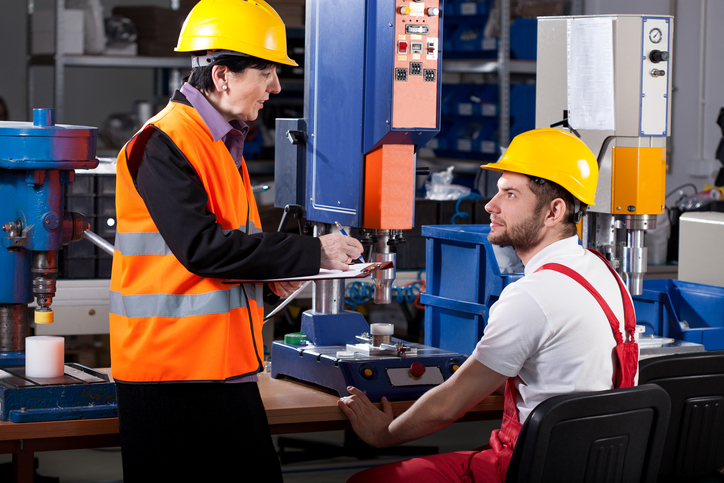No company wants to face a health and safety fine.
As we’ve shown, bigger companies are facing bigger fines since the introduction of tougher sentencing guidelines. This trend continues.
March 2019 saw the following five high health and safety fines for breaking health and safety law:

Freight firm fined £2.7m after boy electrocuted
A rail freight operator was fined £2.7 million after a 13-year-old received an electric shock from overhead line equipment while playing in a marshalling yard.
An Office of Rail and Road (ORR) investigation found trespassers often visited a disused signal box at the yard known as the “haunted house”. Investigators found the operator had failed to secure the yard despite repeated warnings of the risks posed to trespassers.
ORR investigators found two entry points to the yard were not properly fenced off – one had a gate that did not close properly while another had a vehicle gate that failed to stop pedestrians. The investigation found:
- No credible obstacles in place to stop people entering the organisation’s yard;
- No adequate security patrol was present; and
- Signs deterring trespassers were not apparent.
The court heard that the company had been aware of the risk to trespassers and that graffiti indicated that people were gaining entry. Warning signs fixed to the signal box were either indistinct or had been torn down.
DB Cargo (UK) Ltd was found guilty of breaking the Health and Safety at Work etc Act 1974. In addition to the huge fine, it was ordered to pay £188,874 in costs. After a request for DB Cargo documents by the ORR was refused, the company was also fined £33,500.
Fall from height results in manufacturer’s £1.8m fine
A food manufacturer has been sentenced after two workers suffered serious injury falling through a rooflight.
Investigating a roof leak, the workers walked close together not realising that the roof contained several rooflights. One rooflight gave way when both stood on it.
Health and Safety Executive (HSE) investigators found the roof had several rooflights but they were not visible due to moss and dirt build-up. Employees had not been made aware of the rooflights.
Karro Foods Ltd pleaded guilty to breaking the Health and Safety at Work etc Act 1974. It was fined £1,866,000 and ordered to pay £8,019 in costs.
The HSE commented: “This was a wholly avoidable incident caused by the failure of the company to provide adequate controls against the risks arising from working at height. Consideration of roof fragility and rooflights, visible or not, should be made especially on older buildings”.
Poorly-maintained theme park fined £65k
The owners of a theme park ride have been fined £65,000 after nine passengers were injured when a rollercoaster derailed and crashed to the ground.
The HSE found that the owners had failed to make sure the ride was maintained in efficient working order and in good repair. In particular, weld repairs on axles of passenger cars were inadequate, leading to the failure of the axle suspension on the five-car train.
M & D (Leisure) Limited pleaded guilty to breaking the Provision and Use of Work Equipment Regulations 1998 and was fined £65,000. The fine would have been £100,000 but for the guilty plea.
The HSE said: “Our investigation found the company failed to ensure the Tsunami roller coaster was properly maintained and the result of these poor maintenance procedures led directly to its catastrophic failure”.
It stressed: “It is imperative that all controllers of fairground rides have thorough maintenance procedures in place to ensure that the public are safe when they are enjoying the thrills at a fair or theme park”.

Car firm fined £200k after dangerous equipment exposure
Car manufacturer Renault has been fined after failing to maintain vehicle lifting equipment in good working order. The faulty lifts put technicians using them in danger.
The HSE discovered the company was warned that the vehicle lifts posed a danger to users but “repeatedly failed” to ensure workers did not use the defective equipment. Renault Retail Group UK Limited pleaded guilty to breaking the:
- Provision and Use of Work Equipment Regulations (PUWER) 1998.
- Lifting Operations and Lifting Equipment Regulations (LOLER) 1998.
It was fined £200,000 and ordered to pay costs of £17,217. The HSE say that the case “highlights the importance of maintaining work equipment in a safe condition in order to protect workers from danger”.
Marine company fined £34k after ladder fall
A worker working on a dry-dock houseboat fell some six metres from a ladder erected at the back of the vessel. The ladder provided unsafe boat access. A gangway that would have provided safe access was available in the boatyard but had not been fitted because of time pressures.
HSE investigators found that the employer had failed to take suitable and sufficient measures to prevent falls from a distance likely to cause personal injury. They had also failed to carry out a risk assessment.
TS Rigging Limited pleaded guilty to breaking the Work at Height Regulations 2005. It was fined £34,000 and ordered to pay costs of £5,917.
The HSE said: “Falls from height are one of the biggest causes of workplace fatalities and major injuries, with falls from ladders being one of the most common causes”.
It added: “This incident could have been prevented if the company had implemented a safe system of work to prevent falls”.
Health and Safety Executive





